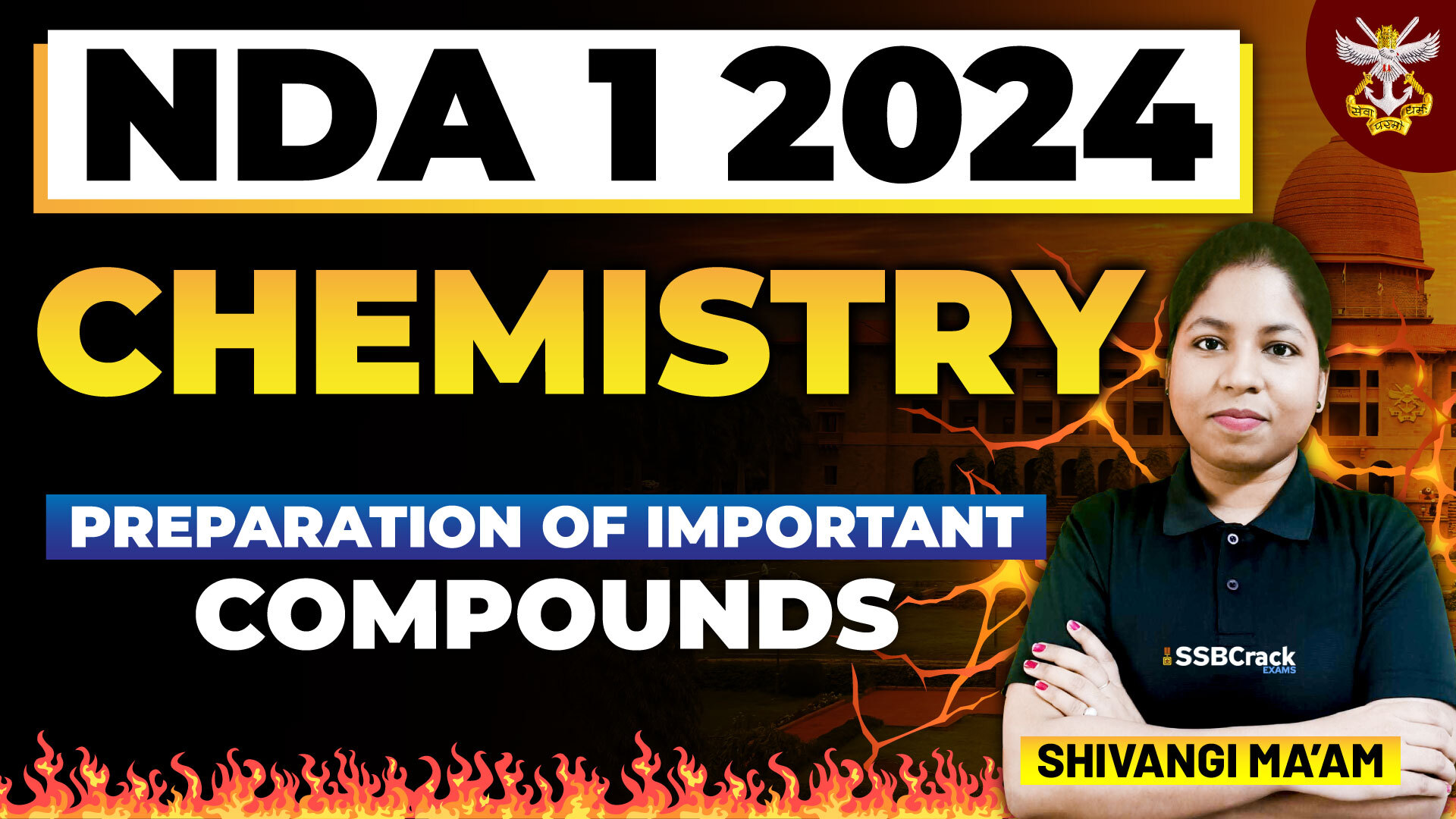Aspiring candidates gearing up for the NDA (National Defence Academy) examination understand the significance of chemistry within the broader scope of the syllabus. Chemistry, often considered the central science, plays a crucial role in the NDA exam, especially in the General Science paper. Among the plethora of topics, the preparation of important compounds stands out as a focal point for candidates aiming to excel.
In the pursuit of excellence, mastering the preparation of significant compounds not only ensures a solid foundation but also enhances problem-solving abilities. Let’s delve into some key compounds and strategies for effective preparation:
1. Ionic Compounds:
- Sodium Chloride (NaCl): A fundamental ionic compound, its preparation involves the reaction between sodium hydroxide (NaOH) and hydrochloric acid (HCl).
- Calcium Oxide (CaO): Prepared by heating calcium carbonate (CaCO3) to high temperatures, typically through a process called calcination.
2. Covalent Compounds:
- Water (H2O): This ubiquitous compound is formed by the covalent bonding between two hydrogen atoms and one oxygen atom.
- Carbon Dioxide (CO2): Prepared by the combustion of carbon-containing compounds or through other industrial processes like fermentation.
3. Organic Compounds:
- Ethanol (C2H5OH): Prepared through the fermentation of sugars followed by distillation.
- Acetic Acid (CH3COOH): Obtained through the oxidation of ethanol or by the fermentation of sugars followed by oxidation.
4. Metal Alloys:
- Brass (CuZn): Prepared by melting copper and zinc together, forming a solid solution of the two metals.
- Steel (FeC): Produced through the combination of iron and carbon, typically in a controlled environment to regulate carbon content.
Strategies for Effective Preparation:
1. Conceptual Understanding: Instead of rote memorization, focus on understanding the underlying principles governing the preparation of compounds. This approach fosters a deeper comprehension, facilitating problem-solving in varied contexts.
2. Visual Aids and Mnemonics: Utilize visual aids such as charts, diagrams, and mnemonic devices to aid memorization. Associating complex chemical processes with memorable cues enhances retention and recall during the examination.
3. Practice Regularly: Consistent practice is key to mastery. Solve a wide array of problems related to compound preparation to reinforce concepts and identify areas for improvement.
4. Seek Clarification: Don’t hesitate to seek clarification on challenging concepts. Engage with peers, instructors, or online resources to address doubts and gain clarity.
5. Mock Tests and Previous Year Papers: Regularly attempt mock tests and previous year papers to simulate exam conditions and gauge preparedness. Analyze mistakes and strategize accordingly to optimize performance.
6. Revision and Review: Allocate dedicated time for regular revision to consolidate learning and reinforce memory retention. Reviewing previously covered topics periodically ensures a comprehensive understanding of compound preparation.
In conclusion, mastering the preparation of important compounds in chemistry is indispensable for NDA 1 2024 aspirants aiming to excel in the General Science paper. By adopting a strategic approach encompassing conceptual understanding, regular practice, and effective revision techniques, candidates can enhance their proficiency and confidence in tackling chemistry-related questions. Remember, diligent preparation coupled with perseverance is the key to success in the NDA examination and beyond.







